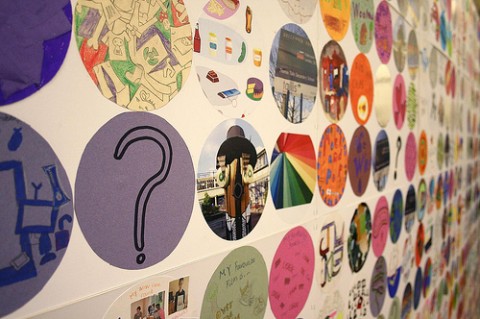Who Do We Think We Are
July 27, 2011 Leave a commentThe physicist Fritjof Capra, founder of the Elmwood Institute, tells the story about a meeting convened years ago by him and his colleagues with a group of Native American elders and thought leaders to explore different perspectives around ecological thinking. From the outset, the gathering was marked by some suspicion towards the Elmwood group, given the historic dynamics of exploitation. The meeting opened with a round of introductions, and an Okanagan woman from British Columbia was first to speak. She began by stating the tribe from which she came and then described the landscape where the tribe lives. She then talked about her father’s and paternal grandparents’ origins, in similar detail, and continued with a description of where her mother and maternal grandparents’ came from. In the end, she linked each family member not just to a named geographic location, but also an illustration of the associated rivers, mountains, plants, and animals. “This is who I am,” she said, wrapping up. “The features of the land determine my conduct, responsibility, and ethics. Now I want to know to whom I am talking, before I say anything else of substance. And I don’t want to hear the books you’ve read, the degrees you’ve obtained, or the organizations you are a part of.”
This became quite a challenge to those who followed, especially the members of Elmwood, who found themselves dusting off childhood memories to talk about the places that had formed them. In the end, the process of introductions alone took 4 hours, and left many with a deep sense of sadness about all of the connections they had lost over the years.
I find this story moving on many levels, especially as it asks us to raise up a mirror and consider who we think we are. How do we tend to introduce ourselves? What do we lift up as markers of our identity? Do we consider the features and circumstances that have determined and continue to shape our conduct, responsibility and ethics? What is the impact of externalizing these, or not? How does the awareness and expression of our own sense of belonging impact where we might go or who we might become? I will continue to consider these questions as I am invited to introduce myself and invite others to do the same.

No Comments
Thanks Curtis for this powerful story and inquiry. I have experimented with introductions here and there to see how different aspects of my identity and privileges show up as important or problematic or irrelevant.
When people see me, they think “This is a black woman.” Sometimes pointing out my Cape Verdean heritage feels more important than others. Sometimes blending into the generic category of “black” is good enough or even better than standing out by way of ethnicity. Fairly often, I am mistaken for Ethiopian by Ethiopian immigrants here.
I often mention growing up in a small, rural farm town, where farmers and mechanics (relatives and family friends) were prominent figures in my life. I, like some of the Elmwood crowd you described, mourn the loss of my early connections to the land. I have not been able to sustain even small time gardening in my city-suburban yard. Still, a lot of my sensibilities come directly from the context in which I was raised and the appreciation for the land and natural cycles that it taught me. I had been thinking about making the next growing season the time to get back to the land (at least a little) and get serious about my garden. Here’s to making it so!
Here, here, Cynthia. Ready to dig back into the Earth! It’s interesting how my recent travels back to Michigan have revived my sensibilities about that natural and cultural landscape and all that it contributed in terms of my formation.
Deep. My mind first went to the frustration with time and how just don’t take the time to hear each other’s stories – as if they were not in the room and as if knowing them wasn’t part of the work. Imagine if we gave time to our stories AND made the time to ask questions about the stories we tell…
I’ve been hearing myself tell my story lately and realizing how I always begin with “born in Puerto Rico, moved to the mainland at 12 – the worst age to become a minority.” Important, even essential – but so much is lost!
During my recent journey to Haiti I had a powerful experience of being in a rural area and being totally surprised but a vivid “body memory” of the natural environment of my childhood. What still strikes me is how my body knew and felt and was transported well before my mind remembered… we really are of the land.
So true about body memory. The smell of wet soil in the summer heat or mowed grass always takes me back and fills me with a deep sense of the safety and beauty of my childhood!
Gibran,
The time piece is huge. Just coming back from a great meeting in Rhode Island that was marked by the gifts of time, local and homemade food, and the chance to sit outdoors for some period as a group under an old tree. While we did not explicitly talk about belonging and land, there was an evolving sense of presence through what was a meandering dialogue that led to real breakthroughs. And of course we often cut these kinds of conversations short because of frustration and the need to get on to other things. Even though we were not explicitly telling each other’s stories, we were certainly getting to know one another.
CO